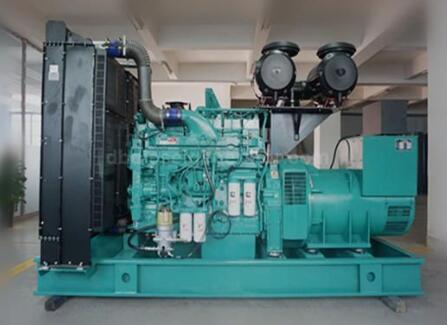How Long Can Diesel Fuel Sit in a Generator?
Diesel generators are essential for providing backup power in various settings, from industrial facilities to residential homes. One critical consideration for those who rely on diesel generators is the stability and shelf life of the fuel. In this article, we will explore how long diesel fuel can sit in a generator, the factors influencing its longevity, and best practices for ensuring fuel quality.
Understanding Diesel Fuel Stability
1. Chemical Composition
Diesel fuel is a hydrocarbon-based liquid with a complex chemical composition. Over time, various factors can impact the stability of diesel fuel, leading to degradation and changes in its properties.
2. Oxidation
One of the primary factors influencing diesel fuel stability is oxidation. Exposure to air can cause the fuel to react with oxygen, leading to the formation of gum and sediments. Oxidation can accelerate the aging process of diesel fuel.
Factors Influencing Fuel Degradation
1. Temperature
Temperature plays a crucial role in the stability of diesel fuel. Higher temperatures can accelerate oxidation and promote microbial growth, both of which contribute to fuel degradation. On the other hand, storing diesel fuel in extremely cold temperatures can lead to issues such as waxing and gelling. Therefore, it is very critical to store diesel at a suitable temperature, because the quality of diesel will also affect the operating performance of diesel generators set to a certain extent.
2. Water Contamination
Water contamination is a significant concern for diesel fuel storage. Water can lead to microbial growth, corrosion of storage tanks, and separation of water from the fuel. Microbes in the water can also contribute to the formation of sludge and other contaminants.
Featured content:Linear Dampers vs Industrial Shock Absorbers
Electric Blankets: A Comprehensive Guide
What Are the Solar Energy Storage Systems of the Balcony?
Shelf Life of Diesel Fuel
10 Facts You Should Know about Solar Energy Systems
10 Things You Should Know About Solar Panel Efficiency
4 Tips for Selecting the Right High-Voltage Synchronous Motors
The Advantages of Implementing Energy-Efficient Lighting Solutions
1. Short-Term Storage
Diesel fuel is generally considered stable for short-term storage, typically up to six months to a year. During this period, if stored under proper conditions, the fuel should maintain its stability and effectiveness.
2. Long-Term Storage
For long-term storage, additional precautions are necessary. Diesel fuel storage tanks should be kept full to minimize exposure to air, and the tanks should be stored in a cool, dry place away from direct sunlight. Regular testing and treatment with stabilizers can also help extend the shelf life of diesel fuel.
Best Practices for Preserving Diesel Fuel Quality
1. Regular Testing
Regular testing of diesel fuel for factors such as water content, microbial contamination, and oxidation levels is crucial for maintaining fuel quality. This allows for timely intervention and treatment if any issues are detected.
2. Fuel Additives
Fuel additives, such as stabilizers and biocides, can be used to enhance the stability of diesel fuel. Stabilizers help prevent oxidation, while biocides combat microbial growth. Choosing the right additives and following manufacturer recommendations is essential.
Conclusion
In conclusion, the shelf life of diesel fuel in a generator is influenced by various factors, including chemical composition, temperature, and water contamination. While diesel fuel is generally stable for short-term storage, proper precautions and maintenance are necessary for long-term storage to ensure fuel quality and the reliable performance of the generator.
If you have questions about diesel fuel storage, additives, or are looking for reliable diesel generators and related equipment, please do not hesitate to contact us. As a reputable supplier, we are committed to providing information and solutions that meet your power generation needs and ensure the longevity of your equipment.
Understanding Glue Gun Heating Elements: Functionality, Types, and Applications
10 Questions You Should Know about Electric Vehicle Charging Systems
4 Tips to Select the Perfect Synchronous RPM
Squirrel Cage Rotor vs. Wound Rotor: Key Differences Explained
How Do Advantages and Disadvantages of Electric Vehicles Work?
10 Facts You Should Know about Induction Motor Efficiency
Essential Induction Motor Parts: FAQs and Solutions Explained
None
Related Articles










Comments